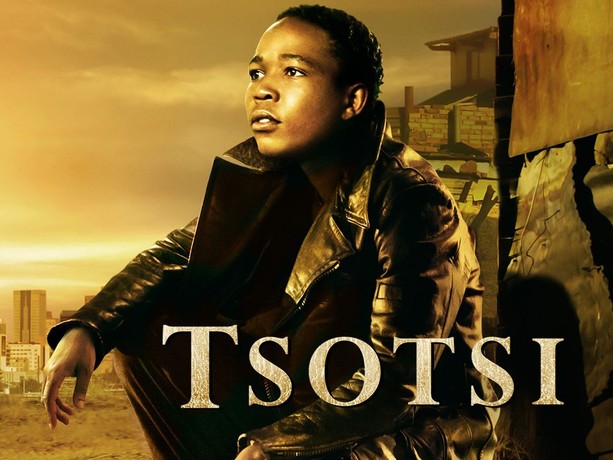The word “Tsotsi” may not mean anything to you right now. But to a majority of southern Africa, that word refers to a thief or a generally untrustworthy person. And to Gavin Hood, it may mean the film adaptation that won him the Oscar for Best International Film in 2006.
The original book by Athol Fugard follows six days in the life of a “Tsotsi,” and in just an hour and thirty-four minutes, Gavin Hood’s adaptation of this work captures the hearts of the audience. Tsotsi, the protagonist, is an outlaw rebel living in a township on the outskirts of Johannesburg. He steals for a living, and one day, confronted by his past and in a fit of rage, he shoots a woman and steals her car, only to reveal a baby in the backseat.
The real beauty in “Tsotsi,” I think, lies not in the plot but really in its entire execution. It’s the kind of movie that has an impact that stays with you, even if you forget the details of the storyline. A big factor in this is the acting, specifically, the late Presley Chweneyegae’s powerful delivery of the character Tsotsi really conveys the humanity in a group of people society is quick to evaluate in a shallow manner. Undoubtedly, his character is one with incredible depth; nonetheless, it would take some significant compassion from a person to have an initial reaction that is considerate of the potential depth in a petty thief and murderer. Chweneyegae makes this not just possible, but easy. He makes Tsotsi so easy to love, and it’s one of the most attractive features of the film.
One of my favourite details about the film is its use of (as far as I’ve counted) five languages– the characters all speak a mix and can comprehend each other perfectly. Specifically, this connection nods to the creation of a more diverse national culture in South Africa as an effect of Apartheid. Furthermore, this phenomenon is quite true to not just how townships function but of the whole of southern Africa. Another thing that makes this film unique is its low budget. His adaptation is not glamorized in any sense. Rather than hinder the quality of the video, it enhances the setting and realism.
I truly could never get bored of this movie because there is symbolism littered all throughout the movie and striking cinematography that at times was powerful enough to elicit physical discomfort from me. I would recommend this movie especially to people who aren’t the biggest fans of movies, and not just film buffs interested in expanding their watchlist. It handles universal themes and subject matter in a way that isn’t particularly common, and although it could be argued that the plot is cliché, the way Hood navigates this trope is noteworthy. If you’re looking for something new, but not too experimental, for something to pull at your heartstrings and make you laugh, or to remind you of the humanity present in the world, this is the film for you.
Categories:
Tsotsi: A Review
About the Contributor

Sesha Geneste, Casual Contributor

